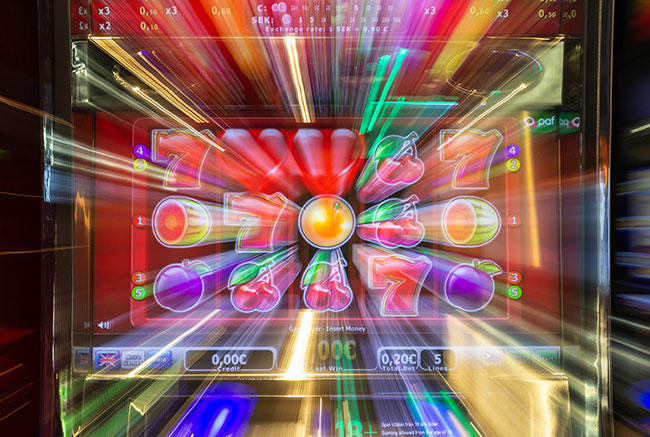
Behind each spinning reel lies extra than simply probability — there’s behavioral design. Probably the most delicate but highly effective mechanisms within the historical past of slot machines is the Close to Miss Impact. From classic pub video games to immediately’s refined on-line slots, this psychological set off has been quietly influencing how gamers interpret losses, understand progress, and resolve to maintain taking part in.
What Is the Close to Miss Impact?
A close to miss happens when a spin lands simply shy of a successful mixture — for instance, two jackpot symbols adopted by a 3rd that’s only one area away. Though the result is technically a loss, the participant typically experiences a rush of pleasure as in the event that they “nearly” gained.
That is no coincidence. Psychologically, the close to miss faucets into the mind’s reward circuitry — particularly the dopaminergic pathways that regulate anticipation and motivation. Even and not using a financial prize, the mind can launch dopamine in response to a close to win, reinforcing the need to proceed taking part in.
In keeping with behavioral research, this impact could be much more stimulating than a transparent loss. In reality, analysis revealed by the American Psychological Affiliation exhibits that close to misses activate mind responses practically an identical to actual wins. This phantasm of progress is central to the attraction of contemporary slot video games.
Designed Intention: When Psychology Meets Sport Mechanics
In early mechanical slot machines, close to misses occurred often as a consequence of bodily limitations. However as slots grew to become digital, builders started simulating near-win occasions deliberately — utilizing programmed reel stops and visible cues that mimic closeness to a win, even when the percentages stay unchanged.
In the present day, close to misses are a designed characteristic, not a bug. Builders make use of sound results, timed animations, and even display shake to intensify the emotional affect of just-missed wins. That is particularly frequent after small payouts or throughout bonus spherical triggers, serving to lengthen play classes and cut back perceived loss streaks.
Some video games even alter the frequency of close to misses utilizing participant segmentation knowledge — primarily tailoring the psychological strain to totally different engagement patterns. Whereas this makes for extremely immersive gameplay, it additionally raises vital questions on moral design.
From Bars to Screens: MGA and the Legacy of Previous-College Design
Lengthy earlier than sport design grew to become a digital self-discipline, the close to miss impact was already shaping participant habits in mechanical slot machines throughout Europe. In Spain, this precept took root within the pub-style arcade slots of the Eighties and Nineties, significantly these developed by MGA, an organization recognized for mixing emotional sport mechanics with conventional aesthetics.
These early machines did greater than entertain — they laid the groundwork for design patterns nonetheless seen in digital gaming. When the business moved on-line, MGA tailored its formulation, combining nostalgic visuals with up to date audio, UX logic, and mobile-first design.
In the present day, their slot portfolio continues to replicate this legacy, particularly in regulated Spanish-speaking markets.
Close to Miss within the Digital Age: Extra Refined, Much less Seen
With trendy engines and AI-powered design instruments, close to misses have turn out to be extra strategic and fewer noticeable. As an example:
- Some video games delay a 3rd image by milliseconds to imitate a “simply missed” final result.
- Others use celebratory sounds or flashing lights even after a loss, encouraging gamers to interpret the occasion as progress.
These parts typically work together with different psychological triggers — comparable to false development, shortage results, or “losses disguised as wins” — to take care of excessive engagement charges.
Whereas the outcomes are ruled by Random Quantity Turbines (RNGs), what gamers see and listen to is totally curated. This disconnect between statistical consequence and perceived expertise is a part of what makes trendy slots each attractive and controversial.
The place Do We Draw the Line?
As issues develop in regards to the addictive potential of sure mechanics, regulators are beginning to take discover. Within the Netherlands, for instance, authorities have proposed limits on animations and sound results which may mislead gamers. In the meantime, the UK Playing Fee has issued new steering calling for higher transparency round how outcomes are introduced and for the removing of probably manipulative options.
Some builders have begun collaborating with behavioral scientists to audit sport loops, making certain compliance with accountable gaming requirements. In parallel, advocacy teams are pushing for participant schooling initiatives to elucidate how psychological design parts — just like the close to miss — really work behind the scenes.
These efforts goal to tell apart “engagement” from manipulation, reinforcing the necessity for moral boundaries in interactive leisure.
A Timeless Mechanic, Reimagined Responsibly
Regardless of altering laws and rising scrutiny, the close to miss impact stays a cornerstone of interactive slot design. Its energy to create suspense and perceived progress is unmatched — but it surely additionally calls for restraint.
The way forward for accountable slot growth might contain:
- Giving gamers entry to transparency instruments, like frequency stories on close to misses.
- Permitting customers to toggle off visible or audio reinforcements.
- Designing slots that inform as a lot as they entertain, particularly for brand new or susceptible customers.
In that context, corporations like MGA display that it’s potential to retain the appeal of basic gaming whereas adapting to trendy requirements of transparency and person safety.
The views and opinions expressed by the writers and columnists of On line casino Participant, Strictly Slots, and Casinocenter.com don’t essentially replicate these of the journal’s administration. All content material is meant solely for leisure and informational functions. Playing could also be unlawful in some jurisdictions—it’s the accountability of every customer to examine and adjust to native legal guidelines earlier than collaborating in on-line gaming. At all times learn the phrases and situations, and gamble responsibly.


